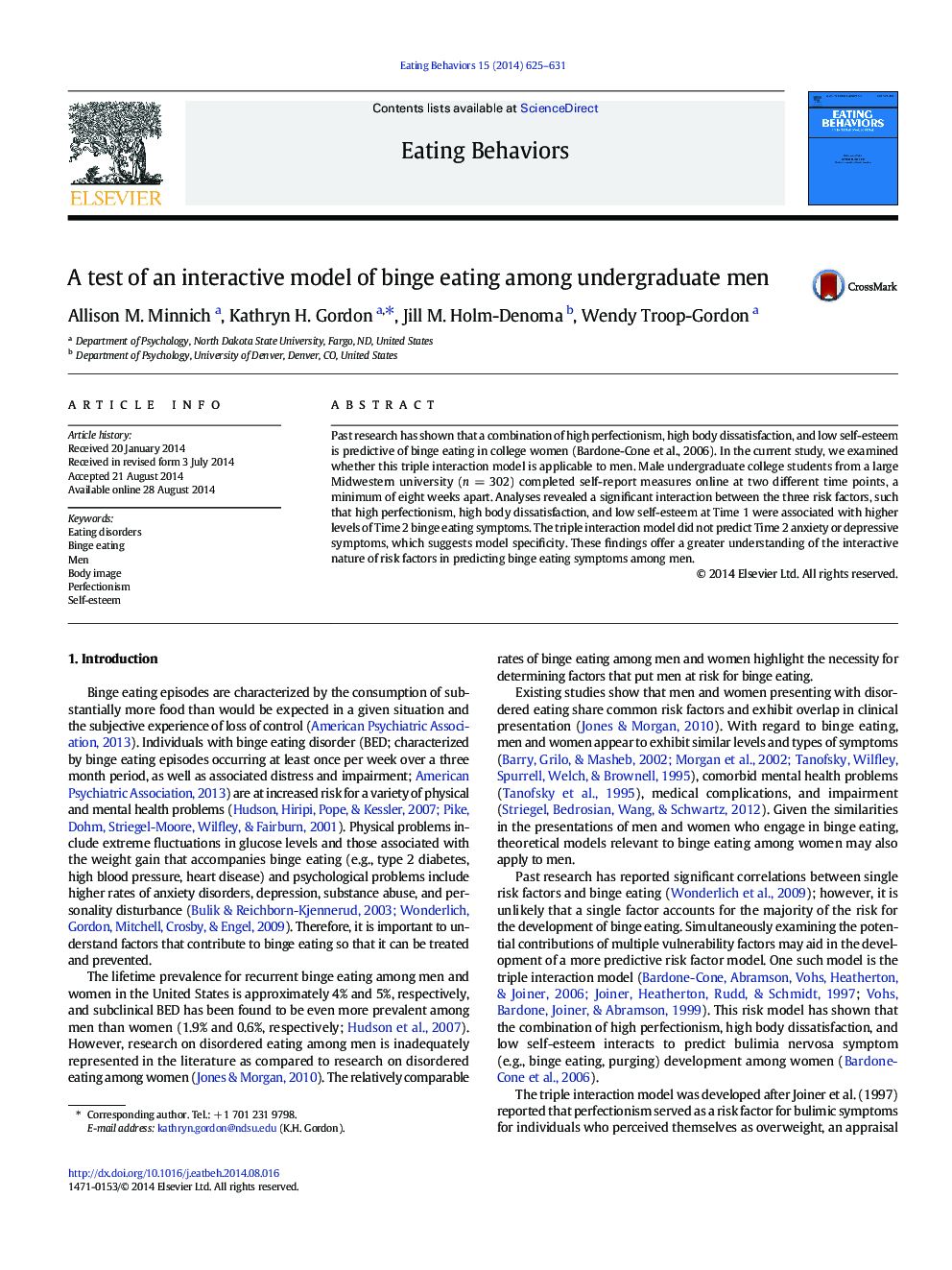| Article ID | Journal | Published Year | Pages | File Type |
|---|---|---|---|---|
| 10446872 | Eating Behaviors | 2014 | 7 Pages |
Abstract
Past research has shown that a combination of high perfectionism, high body dissatisfaction, and low self-esteem is predictive of binge eating in college women (Bardone-Cone et al., 2006). In the current study, we examined whether this triple interaction model is applicable to men. Male undergraduate college students from a large Midwestern university (n = 302) completed self-report measures online at two different time points, a minimum of eight weeks apart. Analyses revealed a significant interaction between the three risk factors, such that high perfectionism, high body dissatisfaction, and low self-esteem at Time 1 were associated with higher levels of Time 2 binge eating symptoms. The triple interaction model did not predict Time 2 anxiety or depressive symptoms, which suggests model specificity. These findings offer a greater understanding of the interactive nature of risk factors in predicting binge eating symptoms among men.
Related Topics
Life Sciences
Neuroscience
Behavioral Neuroscience
Authors
Allison M. Minnich, Kathryn H. Gordon, Jill M. Holm-Denoma, Wendy Troop-Gordon,
